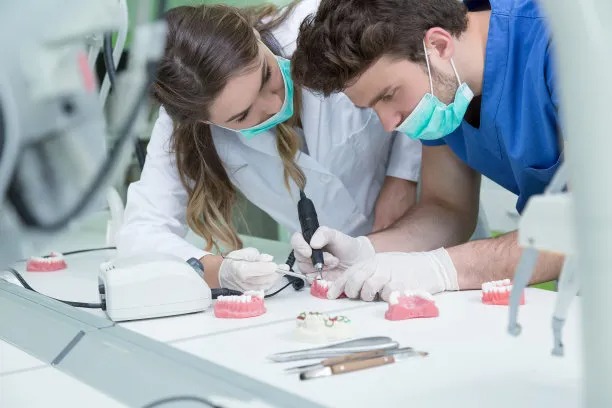Understanding the Impact of Periodontal Disease on Overall Health and Effective Prevention Strategies for Oral Care
Summary: Periodontal disease significantly affects overall health, connecting oral hygiene to systemic health issues. In this article, we will explore four main aspects: the relationship between periodontal disease and systemic health, the biological mechanisms involved, effective prevention strategies for oral care, and the importance of professional dental interventions. Through understanding these facets and implementing proper oral care habits, individuals can mitigate the risks associated with periodontal disease and enhance their overall well-being.
1. Relationship Between Periodontal Disease and Systemic Health

Periodontal disease is more than just a dental concern; it influences various systemic health conditions. Research shows a strong correlation between periodontal disease and ailments like heart disease, diabetes, and respiratory problems. The inflammation caused by periodontal disease can contribute to the progression of cardiovascular diseases by promoting atherosclerosis, or the hardening of the arteries.
Furthermore, individuals with diabetes are particularly vulnerable to periodontal issues. High blood sugar levels can lead to an increased risk of infections, including periodontal disease, which can in turn make blood sugar management more challenging. This creates a vicious cycle that exacerbates both oral and overall health conditions.
Moreover, studies indicate that periodontal disease may impact lung health. The bacteria found in periodontal infections can be aspirated into the lungs, leading to conditions such as pneumonia. This interplay highlights the importance of oral health in maintaining overall wellness.
2. Biological Mechanisms Behind Oral-Systemic Link
The link between periodontal disease and systemic health is predominantly driven by inflammatory processes. Periodontal disease triggers an inflammatory response that not only affects the gums but can also enter the bloodstream. This process allows harmful bacteria and their toxins to circulate throughout the body.
When bacterial pathogens enter the bloodstream, they can promote systemic inflammation. This can lead to a heightened immune response, which has been linked to the development of chronic conditions like cardiovascular disease and rheumatoid arthritis. The bodys attempt to combat these infections can inadvertently cause damage to healthy tissues, magnifying existing health issues.
The role of cytokines, or inflammatory markers, is also noteworthy. Elevated levels of specific cytokines associated with periodontal disease have been implicated in the worsening of systemic diseases. Understanding these biological mechanisms is crucial for developing effective prevention and treatment strategies.
3. Effective Prevention Strategies for Oral Care
Prevention plays a pivotal role in combating periodontal disease. First and foremost, maintaining a rigorous oral hygiene routine is essential. This includes brushing teeth at least twice a day with fluoride toothpaste, flossing daily, and using an antibacterial mouthwash to reduce plaque buildup.
In addition to personal oral care, regular dental check-ups are vital. Professional cleanings can remove tartar and plaque that brushing and flossing may miss. Dentists can also identify and address potential issues before they escalate into more significant problems.
Moreover, lifestyle modifications can enhance oral health. A balanced diet rich in vitamins and minerals supports gum health and combats inflammation. Quitting smoking and managing stress levels will also contribute to maintaining optimal oral hygiene and preventing periodontal disease.
4. The Importance of Professional Dental Interventions
Professional dental interventions are crucial in the management of periodontal disease. Dentists not only perform cleanings but also offer scaling and root planing to ensure that all bacteria and plaque are removed from below the gum line.
In more severe cases, periodontal therapy might involve surgery to restore gum tissue and bone structure. These professional interventions are instrumental in reversing or halting the progression of periodontal disease, which can have profound implications for an individuals overall health.
Additionally, dental professionals can provide tailored advice on maintaining oral health, ensuring patients understand their unique risks and needs. This collaborative care approach enhances the efficacy of preventive measures and treatment strategies.
Summary:
In conclusion, understanding the impact of periodontal disease on overall health is vital for maintaining wellness. The interconnectedness of oral health and systemic conditions underscores the need for effective prevention strategies. Through regular dental care and personal oral hygiene practices, individuals can take proactive steps toward better health.
This article is compiled by Vickong Dental and the content is for reference only.



